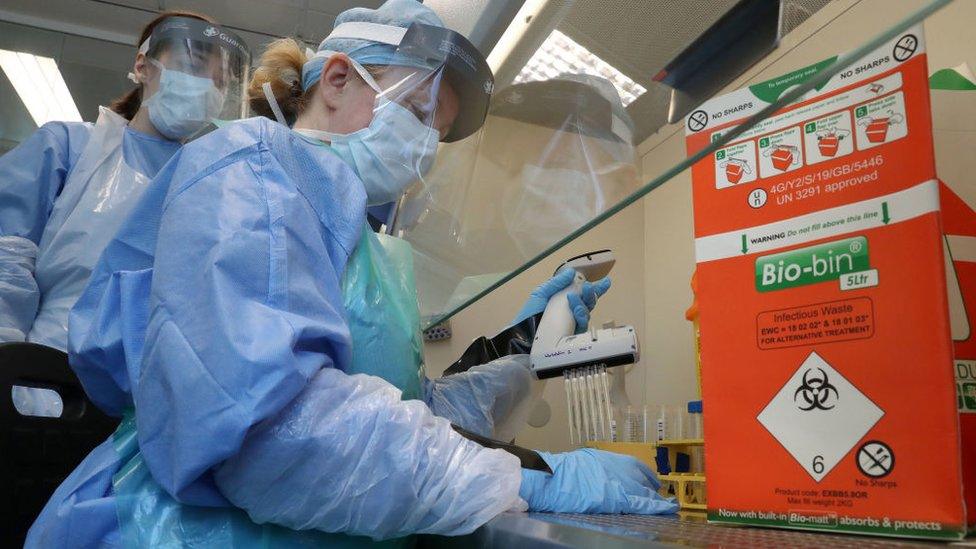Coronavirus: Antibody study for 10,000 Scottish NHS workers
- Published
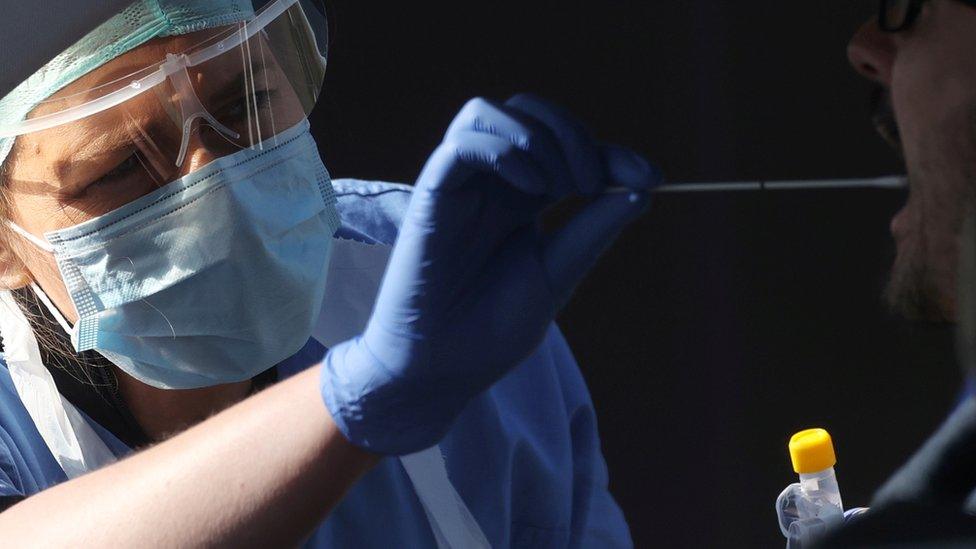
Researchers expect to see anitbodies in people exposed to the Covid-19
Thousands of NHS workers will join a study to establish whether Covid-19 antibodies reduce the risk of reinfection.
Chief Medical Officer Gregor Smith said 10,000 healthcare workers would be recruited for the research.
The Siren study will test people every two weeks for a year to track the effects of antibodies.
Dr Smith said it was an "important and exciting opportunity" to study the long-term impact of Covid-19.
Speaking at the Scottish government's coronavirus briefing, he said he was aware of reports of people potentially catching Covid-19 more than once.
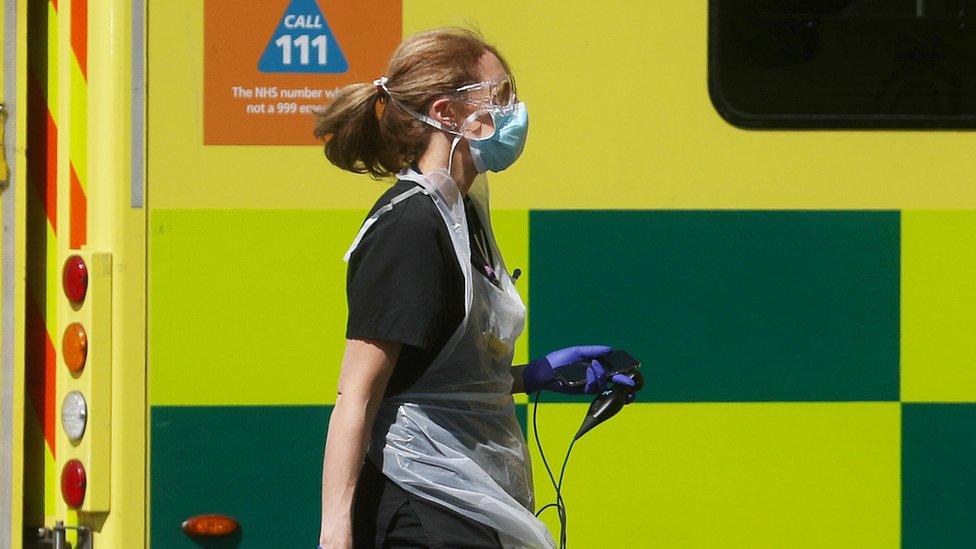
Siren will also help determine levels of infection among NHS workers
He added: "The disease is so new that we are still learning about our immune response to it. And we don't yet know whether it's possible to be re-infected commonly or whether having antibodies will provide enough protection to stop people getting coronavirus more than once.
"That's one of the things that we hope to learn by taking part in the study."
The Siren study has been collecting data in England and will be rolled out across the UK, with a target of regularly testing 100,000 healthcare workers across Scotland and England.
Almost one in every eight public-facing NHS workers will take part in the research in Scotland, organised by Public Health Scotland in collaboration with Glasgow Caledonian University, according to Dr Smith.
Participants will give regular blood and swab tests and will be asked questions to determine how factors such as ethnicity, age or gender affect the chances of infection and any potential immunity.
The study will allow estimates of the amount of infection within the NHS workforce.
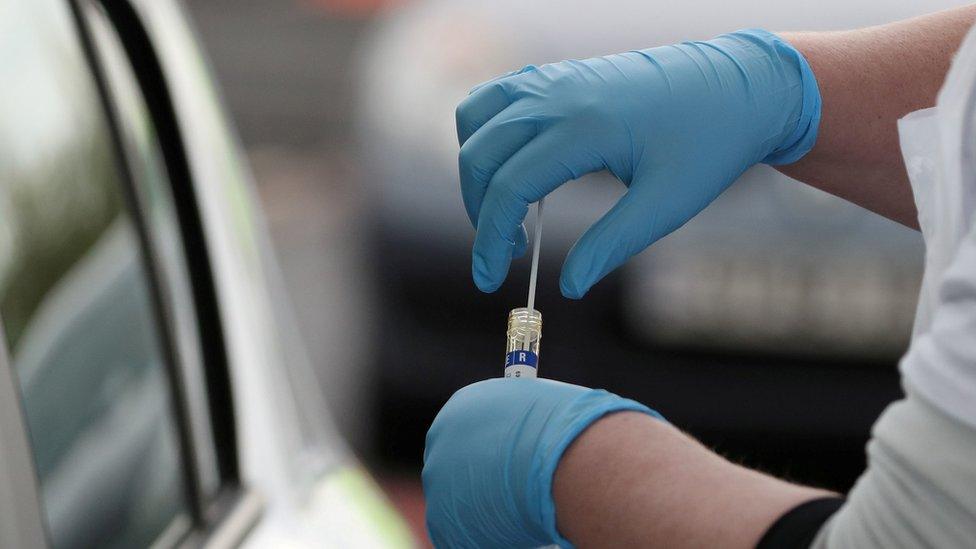
Anitbody tests do not show whether the subject is currently infected
Prof Lesley Price from Caledonian University will co-ordinate the Scottish-arm of the UK-wide Siren project.
She said the study "is important, not just for healthcare workers, but to find out these answers for the general population."
She added: "The aim of the study is to see if anybody who has had Covid-19 gets it again and find out if that provides immunity."
Dr Smith said this would inform policies on infection prevention and control and "create a better understanding of the risks to NHS workers."
In an earlier statement, Dr Susan Hopkins, Siren study lead, said: "We know people who have had Covid-19 produce antibodies in response but what we don't know is whether this means they have immunity against future infection and how long that protection may last.
"Improving our understanding will be critical to future decisions about how best to control the spread of coronavirus."

BACK TO SCHOOL: Can a school insist on a Covid test?
LOCKDOWN EASING: What changes next - and when?

- Published6 September 2020
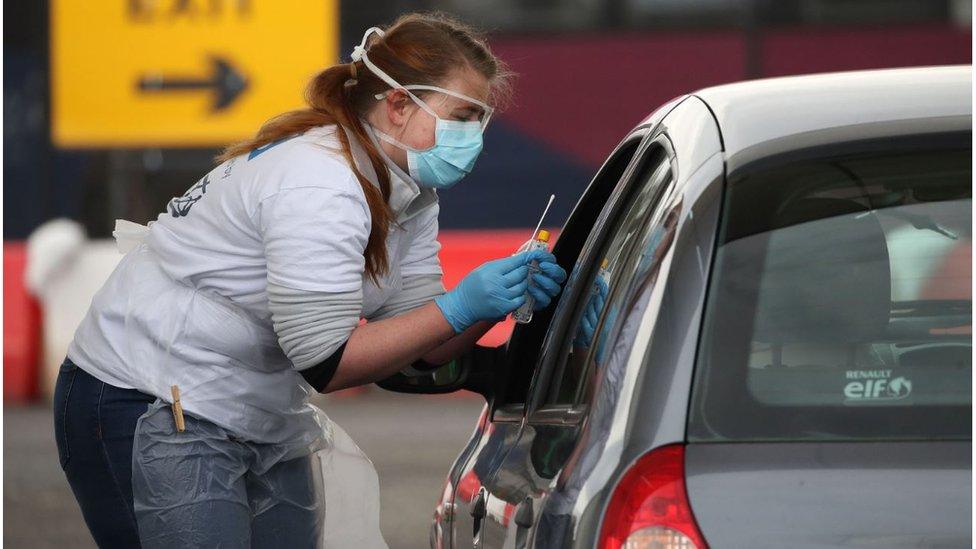
- Published30 August 2020
